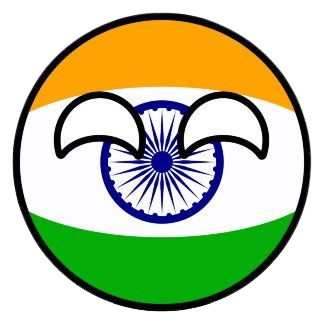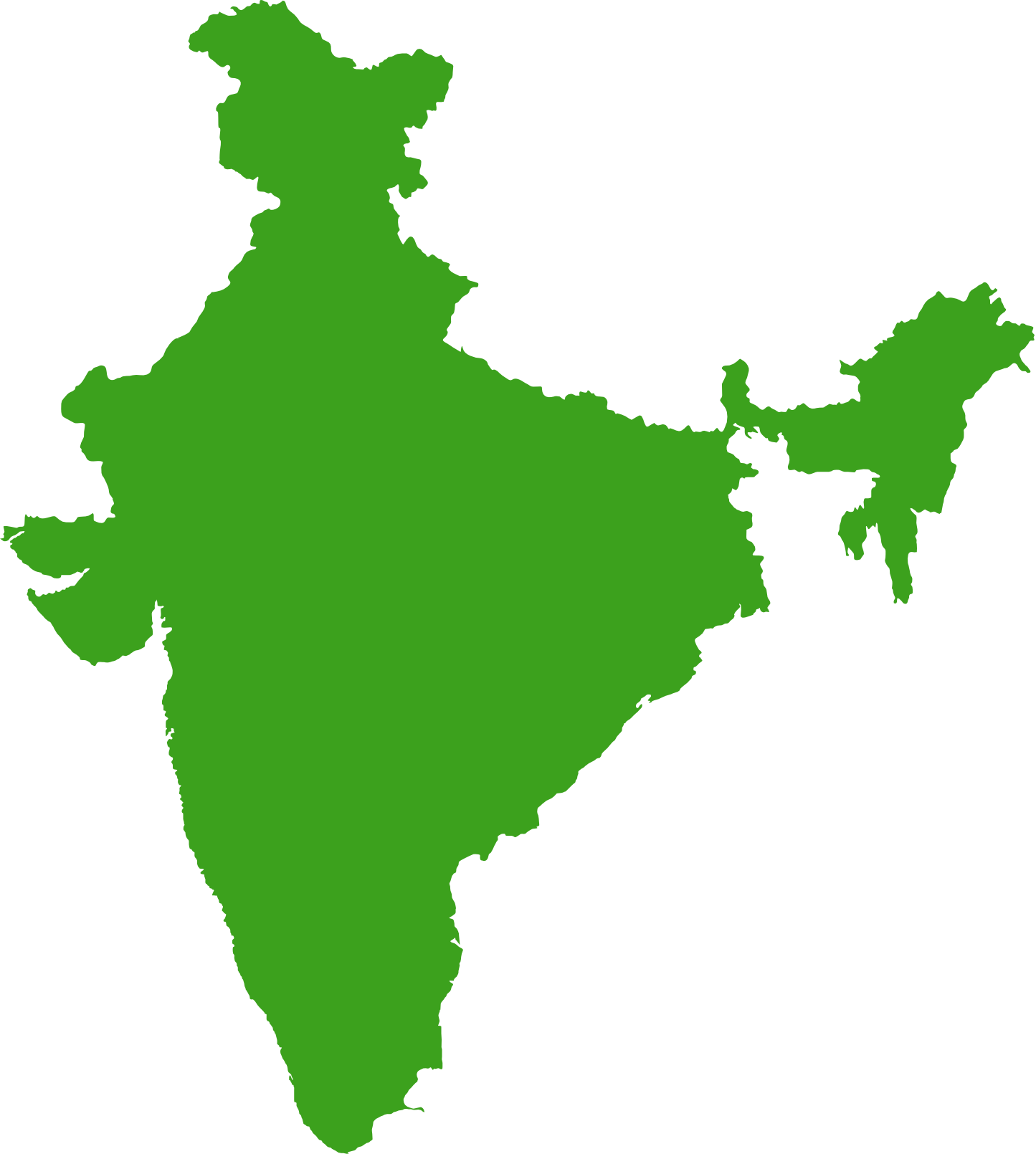
India Facts - Explore the Indian Nation
Interested in India? Dive into India facts that uncover the country’s rich heritage, diverse landscapes, and spiritual traditions. Known for the Taj Mahal, bustling cities, and vast cultural diversity, the country of India is a vibrant blend of ancient customs and modern innovations.
Discover unique facts about India, where colorful festivals and centuries-old traditions continue to thrive. These India facts hopefully highlight the grand spirit of the Indian nation, a land of unity, resilience, and endless cultural heritage.
Overview
India, located in South Asia, is the world's largest democracy and known for its diverse cultures, languages, and religious traditions. It boasts a rich history that stretches back thousands of years, influencing the economic, social, and cultural fabric of this vibrant nation. From the majestic Himalayas in the north to the tropical beaches of the south, India offers a dynamic blend of landscapes, architecture, and experiences.
Key Statistics
Capital: New Delhi
Population: Approximately 1.4 billion
Area: 3,287,263 square kilometers
Official Languages: Hindi and English
Currency: Indian Rupee (INR)
Main Products: Textiles, chemicals, food processing, steel, transportation equipment, cement, mining, petroleum, machinery, software
GDP: Approximately $2.9 trillion (2020)
Tourism: Attracted over 17.9 million international tourists in 2019, drawn by its ancient heritage, vibrant festivals, and beauty.
Brief History
The history of India is characterized by its historic trade routes and vast empires, including the Maurya and Gupta empires that shaped early Indian civilization.
Influential invasions such as those by the Mughals shaped much of its later history, leading to significant architectural and cultural contributions.
Colonized as part of the British Empire in the 19th century, India gained independence in 1947 through a nonviolent resistance led by figures like Mahatma Gandhi.
Today, India is internationally recognized for its well-established democratic system. Additionally, the country has garnered significant attention for its economic strides.
Landmarks and Attractions
Taj Mahal: An iconic symbol of love, this white marble mausoleum in Agra is one of the world's most celebrated structures.
Jaipur's Amer Fort and Hawa Mahal: Testaments to the rich architectural history of India's princely states.
Backwaters of Kerala: Known for their tranquil and picturesque network of waterways.
Varanasi: One of the world's oldest continually inhabited cities and a major cultural and religious hub on the banks of the Ganges.
The Gateways of Mumbai: Historic India Gate and modern Bandra-Worli Sea Link reflect the city's colonial past and dynamic future.
Culture and Traditions
Cuisine: Renowned for its rich flavors and diversity, with staples including rice, lentils, and spices that culminate in dishes like biryani, samosas, tandoori chicken, and dosas.
Arts: Home to classical arts such as Bharatanatyam and Kathak dance, as well as a globally influential film industry, Bollywood.
Festivals: Hosts numerous vibrant festivals such as Diwali (Festival of Lights), Holi (Festival of Colors), Eid, and Christmas.
Religion: A deeply religious society, India is the birthplace of Hinduism, Buddhism, Jainism, and Sikhism, while also having a large population of Muslims, Christians, and other religious groups.
Aerial view of MumbaiThe Taj Mahal, New DelhiCamp in Himachal PradeshDiwali, The Festival of LightTandoori Chicken, an Indian specialtyMahatma Gandhi, Indian revolutionaryFamous Nationals
Mahatma Gandhi: Leader of India's non-violent independence movement against British rule.
Indira Gandhi: First and only female Prime Minister of India.
Amitabh Bachchan: Internationally acclaimed Bollywood actor.
Sachin Tendulkar: One of the greatest cricketers of all time.
Sundar Pichai: CEO of Alphabet Inc., the parent company of Google.
Fun Facts
India is the world's largest producer of movies, outpacing Hollywood in film output.
India has the largest number of vegetarians in the world due to religious and cultural practices.
The Indian railway system is one of the largest and busiest in the world, employing over a million people.
India's ISRO sent a mission to Mars at a cost less than the budget of the Hollywood movie "The Martian."
Travel Tips
Visas: Most visitors require a visa, available either on arrival or through online applications, depending on the country of origin.
Transportation: Features an extensive network of trains, buses, and domestic airlines that connect even remote parts of the country.
Safety: While generally safe, travelers are advised to exercise usual precautions especially in crowded and tourist-heavy areas.
Geography
Landscapes: Diverse range of geographical features from the Thar Desert to the fertile plains of the Ganges river and the high-altitude plateaus of the Himalayas.
Climate: Varies from tropical in the south to temperate and alpine in the north, where elevated regions receive sustained snowfall.
Natural Resources: Rich in natural resources including coal, iron ore, manganese, mica, bauxite, rare earth elements and titanium.
Featured Cities
New Delhi: The capital, known for its historical landmarks and vibrant markets.
Mumbai: The financial and entertainment capital of India, Mumbai is renowned as the home to Bollywood, the largest film industry in the world.
Bengaluru: Known as the Silicon Valley of India, a major tech hub.




